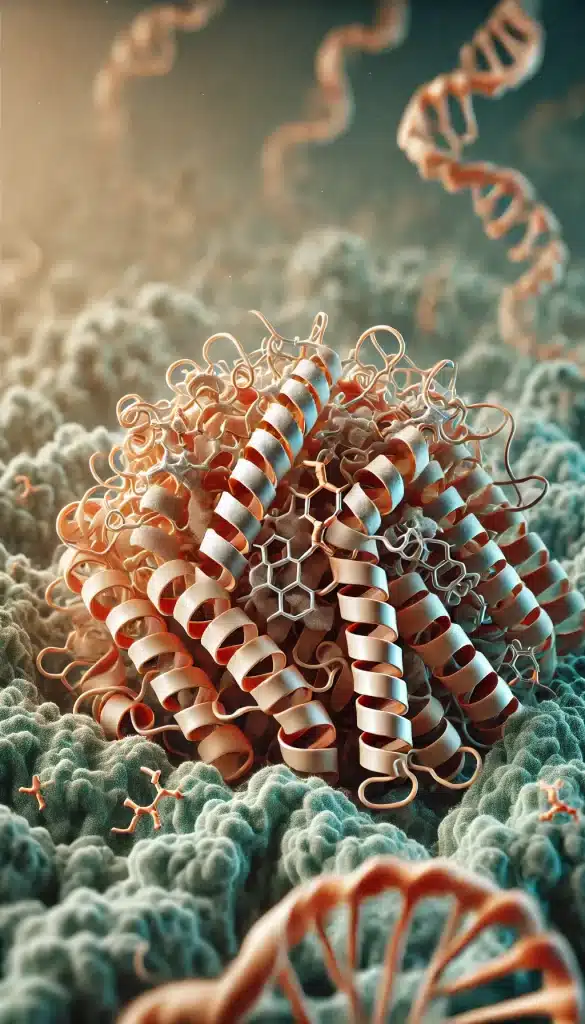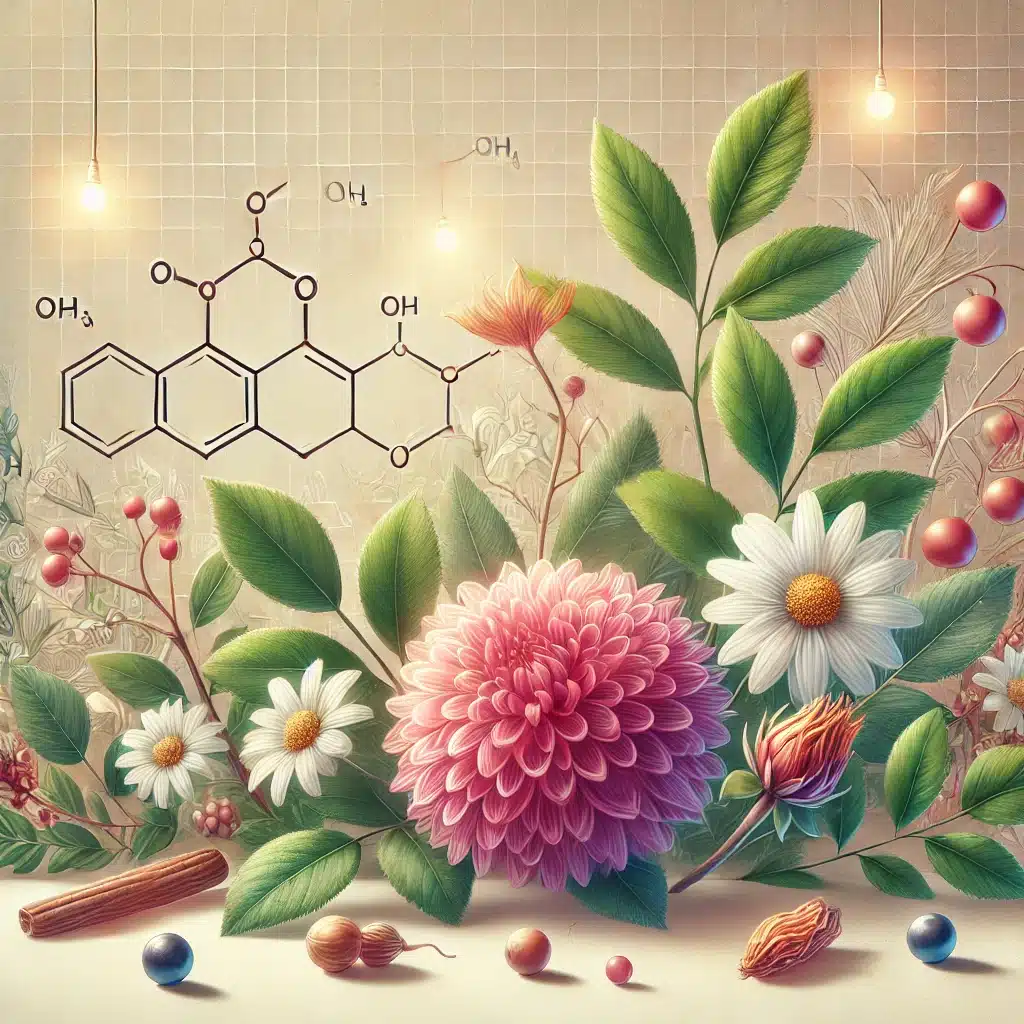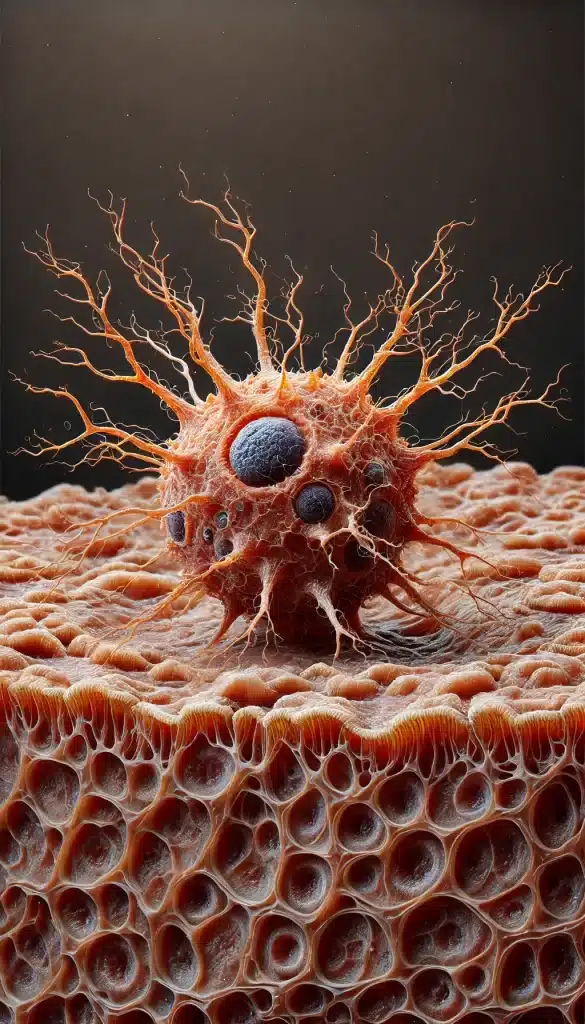written by: Allison Goins, Ph.D. | Posted November 30 at 6:00 am
If you’ve ever tried to treat stubborn hyperpigmentation, you know it can be a long and painful process. There’s no quick and easy way to get rid of this persistent post-inflammatory hyperpigmentation, so if possible, your best bet is to prevent or minimize it. And a tyrosinase inhibitor is the perfect way to do that.
I have acne prone skin and have seen many improvements by focusing my efforts on prevention. If you’re a fellow acne-prone person or just trying to get rid of stubborn hyperpigmentation, you should be no stranger to a tyrosinase inhibitor. You need one in your routine and you need to use it every day. So, let’s talk about what a tyrosinase inhibitor is and why it’s so important in your quest for clear and even skin tone.
What is tyrosinase and why should you inhibit it?
Tyrosinase is an enzyme vital to the production of melanin. Most people know that melanin is the pigment that colors our skin, hair and eyes. However, the lesser known and arguably most important function of melanin is to protect your skin from UV rays.
Related post: What is melanin and how does melanin protect the skin?
Melanin production is a natural process. However, sun exposure, inflammation, hormonal changes and aging can cause excess melanin production, leading to hyperpigmentation. This is why the most common forms of hyperpigmentation are post-inflammatory hyperpigmentation (PIH), tanning after a long day in the sun, or dark spots that appear as we age.
Your body speeds up melanin production in these situations because melanin is a natural antioxidant. It helps neutralize free radicals to prevent them from damaging your skin. And tyrosinase plays a central role in this process, initiating and accelerating the chemical reactions that result in melanin production.
So by controlling or inhibiting tyrosinase activity in your skin, you can reduce melanin production, which is key to preventing and reducing uneven skin tone.
How do tyrosinase inhibitors work?
Tyrosinase inhibitors work by blocking or slowing the ability of this important enzyme to initiate and accelerate melanin production. There is evidence that when applied topically, these inhibitors interfere with enzyme activity in pigment cells (melanocytes). This interference prevents melanocytes from producing stable melanin molecules that can be transported and incorporated into your skin barrier.

Related post: What Causes Hyperpigmentation: The Science Behind Clearer Skin
Stopping this is key to preventing new hyperpigmentation from forming while allowing your skin to form fresh layers and remove existing hyperpigmentation. Over time, consistent use of products that include these ingredients in combination with sunscreen can help even out skin tone and reduce visible hyperpigmentation.
Common types of tyrosinase inhibitors

Some common tyrosinase inhibitors are well studied and available in skin care products. Some of these may be familiar to you while others may be new:
Vitamin C (ascorbic acid)
Vitamin C is arguably the most popular and well-studied tyrosinase inhibitor. Combined with vitamin E and ferulic acid, vitamin C is a popular and powerful science-backed trifecta for treating hyperpigmentation. Vitamin C, in particular, is a powerful antioxidant that neutralizes free radicals and inhibits tyrosinase activity, preventing melanin production.
Niacinamide
Also known as vitamin B, niacinamide inhibits the transfer of melanin from melanocytes to keratinocytes. This is the step where the melanin produced in your skin is permanently incorporated into your epidermis. Stopping this process means avoiding about 10-12 weeks of waiting for persistent new dark spots.
Kojic Acid
Kojic acid is a byproduct of certain fungi and fermentation processes. It is an effective tyrosinase inhibitor and is sometimes used in studies of new tyrosinase inhibitors to determine their effectiveness.
Arbutin
Arbutin is a natural hydroquinone derivative that inhibits tyrosinase without the same level of irritation associated with hydroquinone. While hydroquinone is the gold standard for skin whitening, it can also cause permanent damage to melanocytes and irritate your skin. Arbutin is a milder alternative that, while not as effective as hydroquinone, can help with hyperpigmentation.
Related post: Cracking the Code on Acure Alpha Arbutin Serum
Licorice Extract (Glavridin)
Licorice extract, especially the ingredient glabridin another natural tyrosinase inhibitor. It has been shown to inhibit tyrosinase and have anti-inflammatory properties. This is one of the least studied tyrosinase inhibitors, yet the science is promising.
Related post: Unveiling Nature’s Hyperpigmentation Super Ingredient: Licorice Root Skin Benefits
Azelaic acid
Azelaic acid inhibits tyrosinase and has anti-inflammatory properties. It’s especially popular with people with acne-prone skin because it can help treat both hyperpigmentation and acne.
Benefits of tyrosinase inhibitors in the treatment of hyperpigmentation
So, if hydroquinone is the gold standard for skin whitening, why would anyone use a tyrosinase inhibitor? For starters, hydroquinone is only available when prescribed by a dermatologist, but products with tyrosinase inhibitors can be found over the counter. Here are some of the reasons you might consider using a tyrosinase inhibitor:
- Reduced dark spots and even skin tone: By targeting the root of melanin production, tyrosinase inhibitors gradually lighten dark spots and promote a more even complexion.
- Prevention of new hyperpigmentation: Consistent use of tyrosinase inhibitors, especially when combined with sunscreen, can help prevent new areas of hyperpigmentation from forming.
- Safe for long term use: Many tyrosinase inhibitors, such as niacinamide and vitamin C, are safe for long-term use, making them suitable for managing chronic hyperpigmentation problems. Hydroquinone is not recommended for long-term use as it can permanently damage melanin-producing cells.
- Added benefits: Ingredients such as vitamin C, niacinamide and azelaic acid offer additional benefits such as antioxidant protection, anti-inflammatory effects and collagen support, which boost the health and appearance of the skin in addition to treating hyperpigmentation.
How to incorporate a tyrosinase inhibitor into your skin care routine

- Consistency is key: Hyperpigmentation is definitely one of those skin care issues that is a marathon, not a sprint, and using tyrosinase inhibitors only turns it into a half marathon. If you want to treat persistent hyperpigmentation with a tyrosinase inhibitor, you need to be consistent. It usually takes 2-3 months of continuous use to see noticeable results. Include them in your daily routine for lasting benefits.
- Combine with sunscreen: You will never and I mean never be able to get rid of hyperpigmentation if you don’t wear sunscreen. Sun exposure triggers melanin production and worsens hyperpigmentation if you don’t block harmful UV rays. Thus, the combination of tyrosinase inhibitors with daily SPF is necessary for both treatment and prevention.
- Layer materials carefully: Some tyrosinase inhibitors, such as vitamin C, work well in the morning, while others, such as kojic acid, can be used at night. Be aware of possible skin sensitivities, especially when applying multiple active substances. If you’re ever in doubt, check the directions for the product you’re using or consult your dermatologist.
- Avoid overuse: Although tyrosinase inhibitors are effective, overuse can sometimes lead to irritation, especially with strong options like kojic acid. You always want to start with a patch test and then slowly integrate them into your routine. As you get more used to them, you can increase your frequency of use.
Possible side effects and safety
While tyrosinase inhibitors are generally safe, if you have sensitive skin, you may want to be careful. Standard formulated products such as Topicals Faded Cream are better tolerated than highly concentrated single ingredient products. For example, kojic acid and arbutin can cause mild irritation, especially for sensitive skin. Always perform a patch test before adding a new product to your routine, and consult a dermatologist if you have concerns about specific tyrosinase inhibitors.
Conclusion
Tyrosinase inhibitors are a science-backed approach to the management of hyperpigmentation. By targeting the melanin production process, these ingredients help fade dark spots and prevent new pigmentation from forming. Consistent use of products with tyrosinase inhibitors, combined with diligent sun protection, can make a noticeable difference for those struggling with hyperpigmentation. Whether through vitamin C, niacinamide, kojic acid, or other powerful ingredients, tyrosinase inhibitors offer an effective solution to achieving brighter, more even skin.
